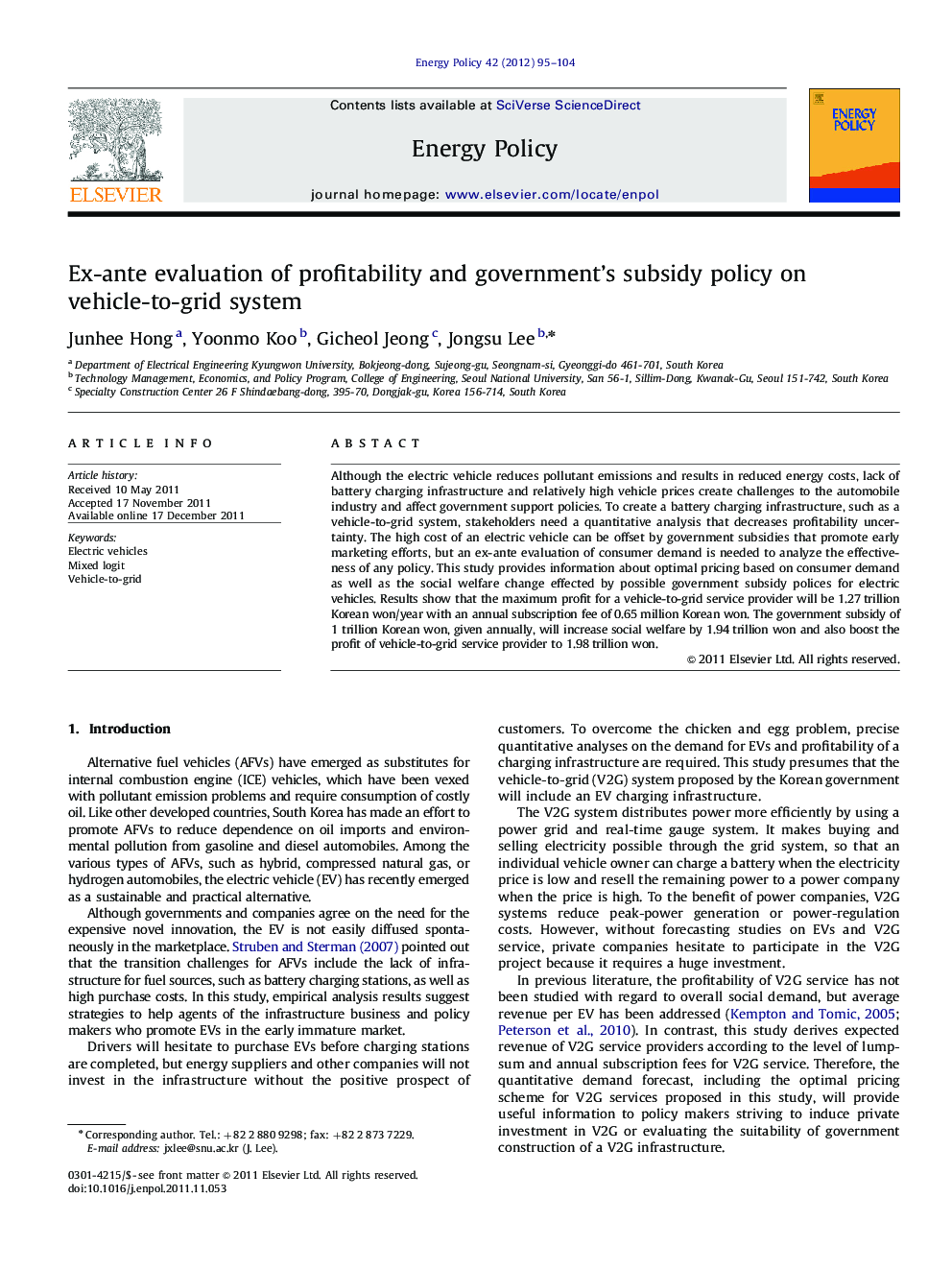| Article ID | Journal | Published Year | Pages | File Type |
|---|---|---|---|---|
| 995750 | Energy Policy | 2012 | 10 Pages |
AbstactAlthough the electric vehicle reduces pollutant emissions and results in reduced energy costs, lack of battery charging infrastructure and relatively high vehicle prices create challenges to the automobile industry and affect government support policies. To create a battery charging infrastructure, such as a vehicle-to-grid system, stakeholders need a quantitative analysis that decreases profitability uncertainty. The high cost of an electric vehicle can be offset by government subsidies that promote early marketing efforts, but an ex-ante evaluation of consumer demand is needed to analyze the effectiveness of any policy. This study provides information about optimal pricing based on consumer demand as well as the social welfare change effected by possible government subsidy polices for electric vehicles. Results show that the maximum profit for a vehicle-to-grid service provider will be 1.27 trillion Korean won/year with an annual subscription fee of 0.65 million Korean won. The government subsidy of 1 trillion Korean won, given annually, will increase social welfare by 1.94 trillion won and also boost the profit of vehicle-to-grid service provider to 1.98 trillion won.
▶ We evaluate consumer preference on electric vehicle and V2G service. ▶ Based on the consumer preference, we calculate profitability of V2G service. ▶ Also, the effect of government subsidy on electric vehicle market is analyzed. ▶ The empirical results will be useful to the V2G service providers and policy makers
